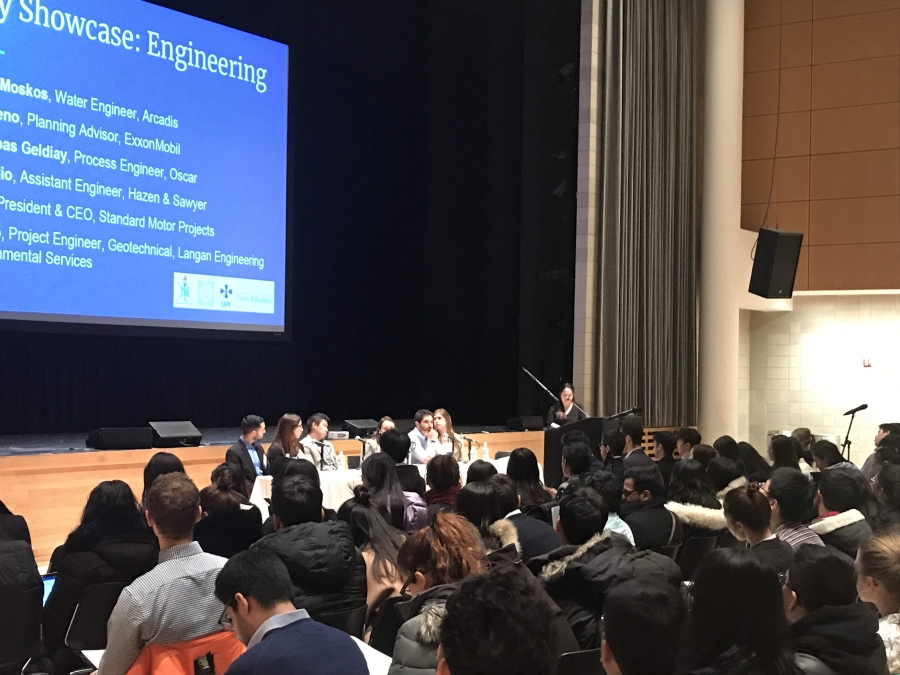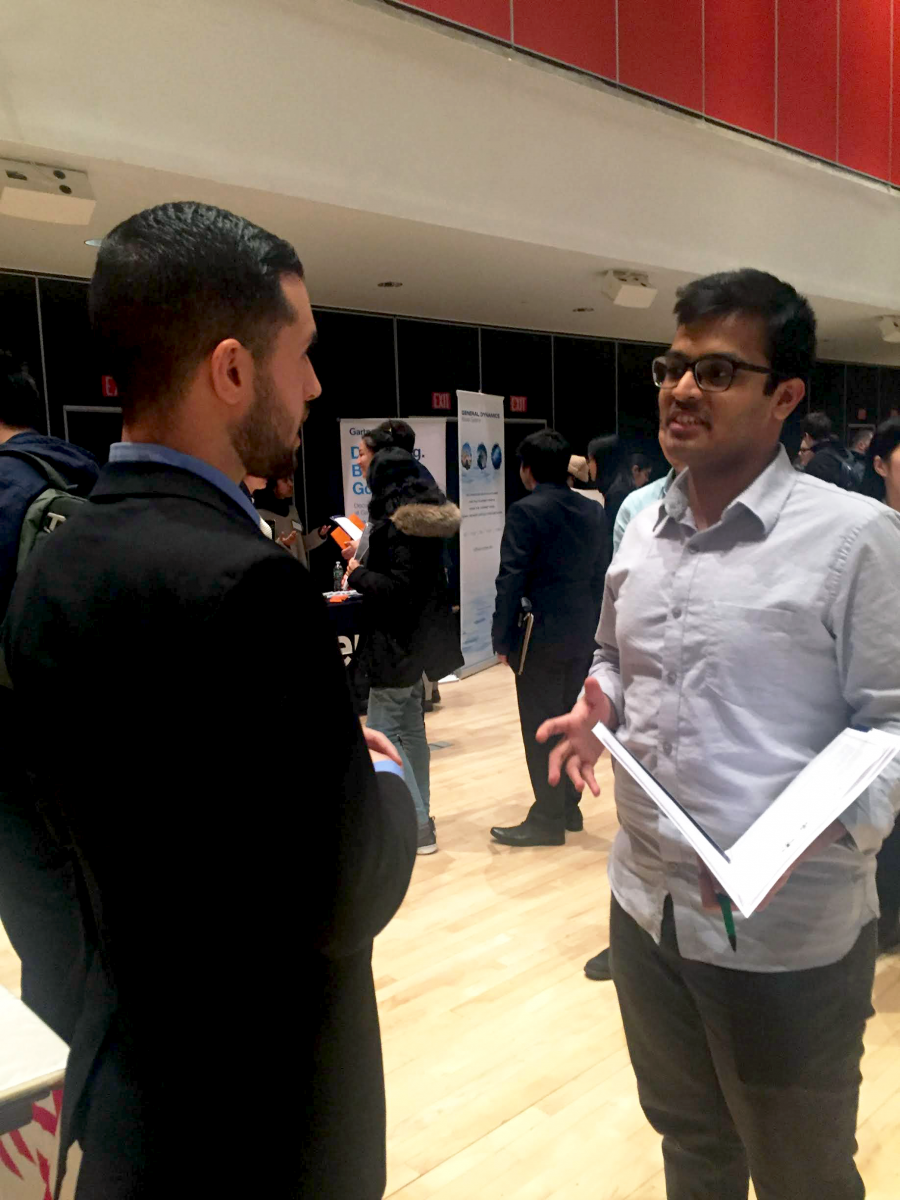Over 120 students gathered for our Engineering Industry Showcase on February 19, 2019 as part of Columbia’s E-week.
The event, co-hosted and moderated by the Society of Hispanic Professional Engineers (SHPE), National Society of Black Engineers (NSBE), and the Society of Women Engineers (SWE), included a panel of alumni and other employers from Oscar Health Insurance, Standard Motor Products, Arcadis, ExxonMobil, Langan Engineering and Environmental Services, and Hazen & Sawyer.
The panel covered everything from transitioning to management to graduate school considerations to recommendations for getting your start.
 |
37 representatives from the following 15 companies joined us for networking after the panel:
- Arcadis
- ExxonMobil Corporation
- Flexport
- Gartner
- General Dynamics Mission Systems
- Hazen and Sawyer
- Langan Engineering and Environmental Services
- Locus Analytics
- Menusifu, Inc.
- New York State Department of Civil Service
- Oscar Health Insurance
- Shawmut Design and Construction
- Standard Motor Products
- Walmart Corp.
- Werum IT Solutions America, Inc.
 |
Get Experience (All of it is valuable)
All the panelists at the showcase agreed that experience, both inside and outside the classroom, are key to kickstarting your career in the engineering field.
Caitlin Fedio at Hazen & Sawyer highlighted that her experience taking classes outside of math and science allowed her to hone different, yet equally valuable skills in communication and writing that serve her well in her current role. Similarly, Brian Moreno from ExxonMobil shared the value of testing out different disciplines to see what could be the right fit.
Internships are one way to gain knowledge about different disciplines and the work environment, without the pressure of committing to one company. Eric Sills at Standard Motor Products painted internships as a “test drive” for students to see what they are interested in.
 |
Figure Out What Companies are looking for
The keywords described by multiple panelists were: inquisitive and teachable.
These traits take you a long way when applying for jobs, as most engineering companies are looking for new hires to be a good fit for the company, while the training will likely happen on the job.
Selin Geldiay highlighted that the technical skills you have will be useful, but the ability to demonstrate that you are a quick learner, and effectively communicate, can shed new light on you as a candidate. Richard Lo shared the importance of understanding the core values of the company as well.
New hires should do their research and know what the mission of the organization is, in order to see where their values align. With that research, your authentic interest in the field and the work can shine in an interview.
 |
Pick a Path A.K.A. Industry vs. Graduate School
Do Your Research
Many of the panelists seemed to agree that research is key in making this personal decision.
“Depending on the industry you may or may not need a Masters [degree]… if you are on the fence, gain some work experience and then get your boss to pay for it.” -Richard Lo, Project Engineer at Langan
Richard acquired work experience in between his two Masters degrees which he says can allow for smarter questions and to be a “true master.”
Take the Time to Learn about your Field
Selin Geldiay shared that every year she re-evaluates if getting an advanced degree is needed, but so far feels it’s not as she’s gaining new skills and knowledge in her current role. She added that there is a lot of on the job learning at tech startups and there are other resources you can use to learn the skills you need.
Reflect on All Factors Involved
Catherine Moskos found that taking some time off to explore and take a break has provided a lot of reassurance in her decision to currently pursue a Master of Science degree.
 |
Decide on an End Goal: Do I Want to Be A Manager?
Begin with developing your technical skills and exposure to navigating challenges that arise.
In the first few years of work, the panelists recommended making an effort to better understand the role of your manager and anticipate their needs.
“Become an expert in a technical area that others may not be interested in — people will then come to you for answers.” - Selin Odabas Geldiay (SEAS ’16), Process Engineer at Oscar Health Insurance
This is in line with broadening your skills and “saying yes” to opportunities and new projects. Brian Moreno (SEAS ’09) – Planning Advisor, ExxonMobil said to look out for someone whose job you want, take time to ask them about their start and also their long term plan. Talk to your manager about your interests in leadership so they can also look out for opportunities.
To set yourself up for a manager role, start by getting a solid foundation in a technical role. Then as you move away from the technical into management, you can still understand and communicate clearly about the technical work.
 |
Learn more
If you’re interested in learning more about Engineering, check out our Industry page on Engineering.


